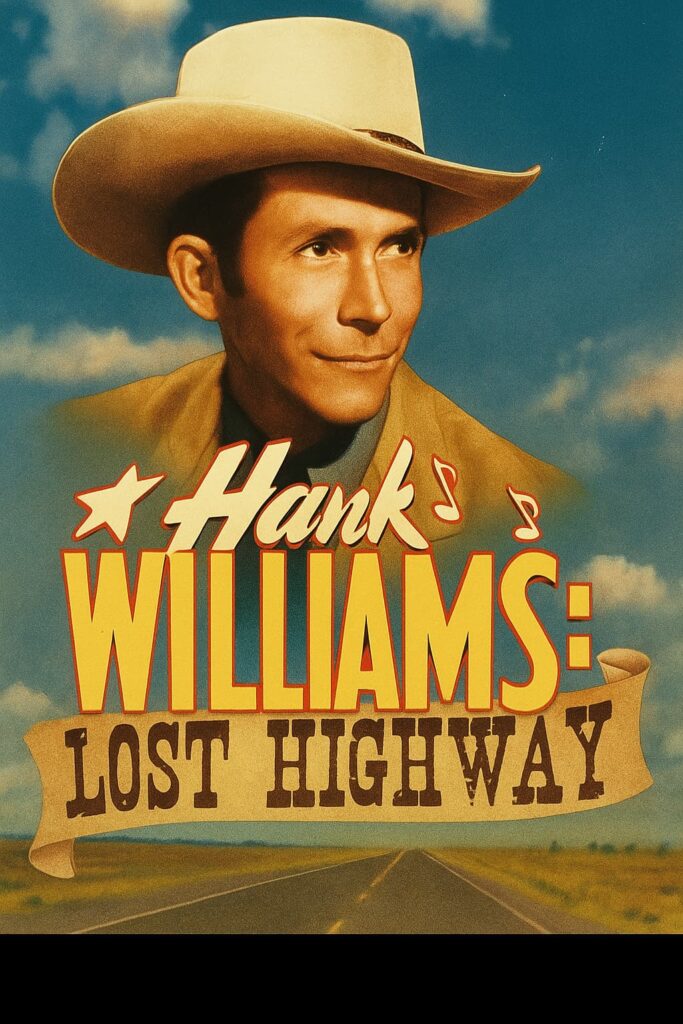
The haunting wail of a steel guitar, a voice that sounds as if it has been carved from sorrow itself, and a stark, uncompromising lyric about a life gone wrong—that is the essence of “Lost Highway” by the legendary Hank Williams. But to hear the song today is to feel more than just the blues; it is to feel the ghostly echo of a man whose short, tragic life became inseparable from the very narrative of the music he sang.
When Hank Williams released his version of “Lost Highway” in 1949, it was not an immediate runaway smash, but it was far from a failure. The song, a B-side to “You’re Gonna Change (Or I’m Gonna Leave),” climbed to a respectable No. 12 on the Billboard Country & Western charts. Yet, its true power was never in its chart position. Its power lay in its prophecy, its profound resonance with Williams’s own tumultuous path, and its eternal warning to generations of listeners.
The story behind this iconic track is a testament to the serendipitous nature of great art. It’s a common misconception that Hank Williams penned every one of his signature songs. In fact, “Lost Highway” was written by a blind country singer-songwriter named Leon Payne. The tale goes that in 1948, Payne, while hitchhiking from California to his home in Texas to see his sick mother, was stranded on the side of the road. Unable to get a ride, he was taken in by the Salvation Army. It was during this moment of profound isolation and despair that he put pen to paper, crafting a song about a traveler caught on a road to nowhere, paying the price for a life of aimless sin. Payne’s original recording, released in late 1948, was a fine piece of work, but it was Hank Williams’s rendition just a few months later that would imbue the lyrics with a new, deeply personal, and almost supernatural weight.
For anyone listening to “Lost Highway” with the benefit of hindsight, the song’s meaning is chillingly clear. It’s a mournful confessional of a man whose poor choices have led him down a path from which there is no return. The protagonist is a “rolling stone, all alone and lost,” a soul who made a wrong turn and finds himself trapped by the consequences. The song’s most poignant advice—”boys, don’t start to ramblin’ ’round / On this road of sin, or you’re sorrow bound”—feels less like a general warning and more like a desperate cry from the future, from a man who already knew his own fate. The combination of a “deck of cards and a jug of wine / And a woman’s lies” that made up his life became the precise, tragic formula that would define Hank Williams‘s own final years. He was the rambling boy who took the warning and turned it into his own epitaph, a man whose life became the embodiment of the song’s meaning.
Listening to it today, it’s impossible not to hear the sorrow of an entire generation. It speaks to the older soul, the one who has seen friends and family take a similar road, making choices that were understandable at the time but led to a lifetime of regret. The song is a mirror for all who have ever felt lost, a ballad for the broken and a hymn for the lonely. Its stark simplicity—just a man, his guitar, and a profound sense of foreboding—transcends the decades, cementing Hank Williams’s status not just as a singer, but as a poet of the human condition. His voice, strained and full of ache, didn’t just sing the words; he lived them. And because of that, his “Lost Highway” remains a timeless journey for anyone who has ever wrestled with the ghosts of their past.